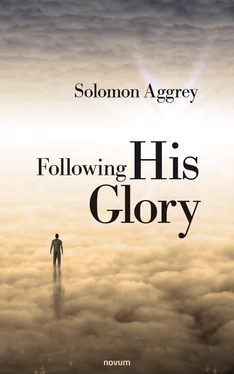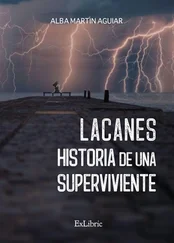The earth can be seen as representing man. Man is essentially dust, earth. There was a gulf separating man and God and His kingdom. Jesus, referring to Jacob’s revelation, said that, ‘hereafter you shall see heaven open, and the angels of God ascending and descending upon the Son of Man.’ (John 1.51). Jesus therefore solved the mystery of the nakedness of God; that He, Jesus Christ, was the staircase Jacob saw in his dream. In other words, nobody can see who God really is except through Jesus Christ. When God uncovers Himself, He reveals Jesus Christ, the brightness of His glory and the express image of His person. The angels are the ministering spirits sent forth to minister the grace and love of God on earth (Hebrews 1.14).
Jacob stayed at the place of revelation all night because the sun had set. ‘The sun had set’ may refer to the last days or the end times. In the end times God will uncover Himself and reveal Jesus Christ in a special way that His people might have greater access to the King and His kingdom. In the end times angelic ministry will increase and people will live under open heaven.
God, in El Bethel, confirmed the change of name He had earlier effected in Jacob. ‘Your name is Jacob; your name shall not be called Jacob anymore, but Israel shall be your name.’ (Genesis 35.10). Jacob means ‘heel catcher, supplanter’ and Israel means ‘he who wrestles with God’ or ‘Prince of God.’ So Jacob’s identity was also changed to reflect his assignment. ‘Your name shall no longer be called Jacob, but Israel; for you have struggled with God and with men and have prevailed.’ (Genesis 32.28). The MKJV version says, ‘For like a prince you have power with God and with men.’ Israel as a prince of God shall prevail in prayer with God and over all its enemies on earth.
Looking prophetically at Enoch, Noah, and Jacob in the reverse order, Jacob represents a sinful generation, needing a Mediator, Jesus Christ, between it and heaven; Noah represents the righteous saved by the grace of Jesus Christ; by the ark or the wood of His death; while Enoch represents the cleansed, matured and prepared bride of Jesus Christ. In Enoch we see the catching up of the saints, when the church had not yet been born. Amazing!
Mankind has to go full circle. ‘As it was at the beginning, so shall it be at the end.’ We shall be like the first Adam before his fall. This is God who declares the end from the beginning and from ancient times things that are not yet done (Isaiah 46.10). There was a Voice of God which walked in the garden in Eden when Adam sinned. The same Voice came to Enoch, to Noah, to Abraham, to Isaac, to Jacob, to Moses, and to other powerful prophets like Elijah, Isaiah, etc. until finally, the Word, Jesus Christ became flesh. The same Voice continues as the Voice in the wilderness calling people to repentance and return to the kingdom. ‘Repent, the kingdom of God is at hand.’
Chapter 2 - The Voice In The Fire
According to the word of God, 70 people of the seed of Abraham, in the time of Joseph, the governor of Egypt, went to live in Egypt for over 200 years. God’s promise of multiplication of the seed of Abraham began to be seen in Egypt. The children of Israel grew greatly in number (Genesis 47.27). A new Egyptian Pharaoh arose who saw the children of Israel as a threat. ‘Look, the children of Israel are more and mightier than we; come, let us deal shrewdly with them …’ (Exodus 1.9-10).
Egypt enacted new laws and set taskmasters over the children of Israel, to afflict, maltreat and force them into hard and bitter bondage. It was to break the spirit of the children of Israel, bring them under reproach, rob them of their freedom, ruin their health, shorten their lives and decrease their number. The bondage also affected the relationship between the children of Israel and their Hebrew God and introduced them to the worship of Egyptian idols and gods. Therefore, the culture and worldview of the children of Israel were altered, but the children of Israel continued to multiply, even under that oppression, because of their covenant with God through Abraham.
God told Abraham that he would be a father of many nations and that his seed would be strangers in a land and be afflicted for four hundred years. ‘And also the nation whom they serve I will judge; afterward they shall come out with great possessions.’ (Genesis 17.4, Genesis 15.13-14) When the time of their freedom came and a deliverer was to be born, Pharaoh issued another law, that all new-born sons of the children of Israel should be sacrificed to the Nile god. It was in that period that Moses was born.
I believe the devil, through Pharaoh, was trying to stop the deliverer of the children of Israel. It happened again under King Herod, who ruled over the Jews, when Jesus was born. King Herod killed all the male children aged two years and under in Bethlehem and all its districts in order to eliminate the Messiah (Matthew 2.16). But he was unsuccessful.
Moses was therefore born of Israelite slaves in Egypt but was adopted by the ‘daughter of Pharaoh’ (Exodus 2.25) and lived as a prince in Egypt. Stephen, in Acts 7.22, says, ‘And Moses was learned in all the wisdom of the Egyptians and was mighty in words and deeds.’ Moses looked to all people as an Egyptian but in his heart, like all the children of Abraham, burned flickers of the light of a covenant with El Shaddai, the God of Abraham. Moses tried to set free an Israelite by killing an Egyptian when the two were engaged in a fight. When the matter became known to Pharaoh, Moses fled from Egypt in fear of his life and settled in Midian as an ordinary shepherd.
After forty years of silent work as a shepherd in Midian, Moses had become a family man, with a wife named Zipporah, the daughter of his master Jethro, and two sons, Gershom and Eliezer. He had settled down to the life of a shepherd. Tending a flock was now his proper profession. At the age of 80, he might have forgotten about his people in bondage and established himself comfortably with his new occupation and his new family. But one day, as Moses tended the flock of his father-in-law, he came to Horeb, the mountain of God (also called Mount Sinai). He was doing his normal and daily work.
‘And the Angel of the Lord appeared to him in a flame of fire from the midst of the bush so he looked, and behold, the bush was burning with fire, but the bush was not consumed.’
Exodus 3.2
The Hebrew word for ‘Lord’ is Jehovah. It is one of the names of the revelation of God, meaning Self-Existing One. Angels are spiritual beings who serve in the government of Jehovah on many and varied levels and duties. I do not believe the angel of the Lord refers to pre-incarnated Jesus. The Hebrew word for angel is malak and it means one dispatched as a deputy; a messenger and ambassador. The angel of the Lord is special to Him. He is not only a messenger but an ambassador and a herald of Jehovah. So, many times the angel would speak like Jehovah and open the door for Jehovah to interact with mankind. In this book the Lord and Jehovah will be used interchangeably.
Moses had seen countless numbers of bush fires but the one in question fascinated him. With all his education and experiences in Egypt and in the desert, Moses had never seen such a phenomenon before. The fire was burning but the bush was not consumed. The fire therefore was self-existing and seemed not to depend on the bush or any external source for energy. Impossible! Where did it get its energy from? Moses said, ‘I will now turn aside and see this great sight, why the bush does not burn.’
‘So when the Lord saw that he turned aside to look, God called to him from the midst of the bush, and said, ‘Moses, Moses!’ and he said, ‘Here I am.’’
Exodus 3.4
Moses did not just pass by or ignore the strange sight. When Moses turned to investigate the matter, God then had his attention, so He called his personal name, Moses, Moses. God called him who was seeking, whose attention was turned towards seeking the truth. Many of us, right from our childhood through school, through the media and our culture, have been programmed out of the knowledge and faith in God. We approach the Bible with a secular cultural mind-set and sometimes with a theological or religious bias. Are we really prepared for the truth? Can we handle the truth?
Читать дальше












